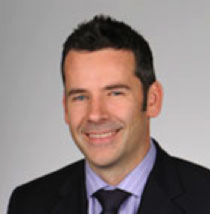About
Dr. Catchpole is a cognitive scientist and human factors practitioner who has spent over a decade studying the influence of task, team, technology and environment on safety and performance in acute care. He began his work at the world-renowned Great Ormond Street Children’s Hospital in London, working with congenital heart surgery teams. This work was followed by six years as a senior research fellow at the University of Oxford where he extended this research and quality improvement to vascular, general, and orthopaedic surgery, utilizing techniques from other industries such as aviation, production, and formula one motor racing. After this, he accepted a four year position as Director of Human Factors research at Cedars-Sinai Medical Center in Los Angeles, working on trauma care, robotic surgery and the Operating Room of the Future. He recently moved to a new position as SmartState Endowed Chair in Clinical Practice and Human Factors at the Medical University of South Carolina, where he is collaborating with the School of Architecture and the Department of Systems Engineering on several safety-related projects. He has also contributed to healthcare research and improvement at hospitals in the Netherlands, Norway, Australia, and New Zealand, and his work has been adopted internationally by hospitals as far away as Dubai and Sao Paulo. Through over 60 peer-reviewed journal articles, speeches to more than 15,000 people, and media coverage that has reached at least 30 million worldwide, Dr. Catchpole has sought to engage clinicians, scientists, and the public in the improvement of safety and quality in healthcare from a human-centered perspective. For more information, see his Curriculum Vitae.
How their research is transforming health care
Dr. Catchpole has been a pioneer in the application of human factors engineering principles to improve safety and performance in acute care. His work in surgery pioneered the use of direct observation methods for understanding why errors happen in surgery. This lead to interventions to improve the process, teamwork, safety and outcomes in surgical care, and the first study examining the effect of teamwork training on surgical behavior. This work was extended to multi-faceted improvements in teamwork, process and environment including the first study to quantitatively report the effects on care processes of a ‘Lean’-style quality environment and technology interventions to improve trauma care. Most recently, Dr. Catchpole is the first to explore and compare combinations of teamwork and other process-based interventions to improve the delivery of surgical care. Significant effects on process, treatment times, and length of stay were observed in these studies. In his highly cited and influential handover studies, best practices from motor racing and aviation were used to develop a highly successful handover process for transferring patients from surgery to intensive care. This work has been adopted in units worldwide and has been influential in moving beyond simplistic narratives to a deeper understanding of how to improve performance handoffs. Finally, Dr. Catchpole’s definition of Clinical Human Factors was adopted by the NHS as a way to communicate the more complex components of his profession to clinicians and establish a formal capability in the UK.
Health research keywords
Human factors, Patient safety, Surgery, Medical error, Accident, Handover, Teamwork training, Quality improvement, Sterile processing, Built environment, Surgical technology

